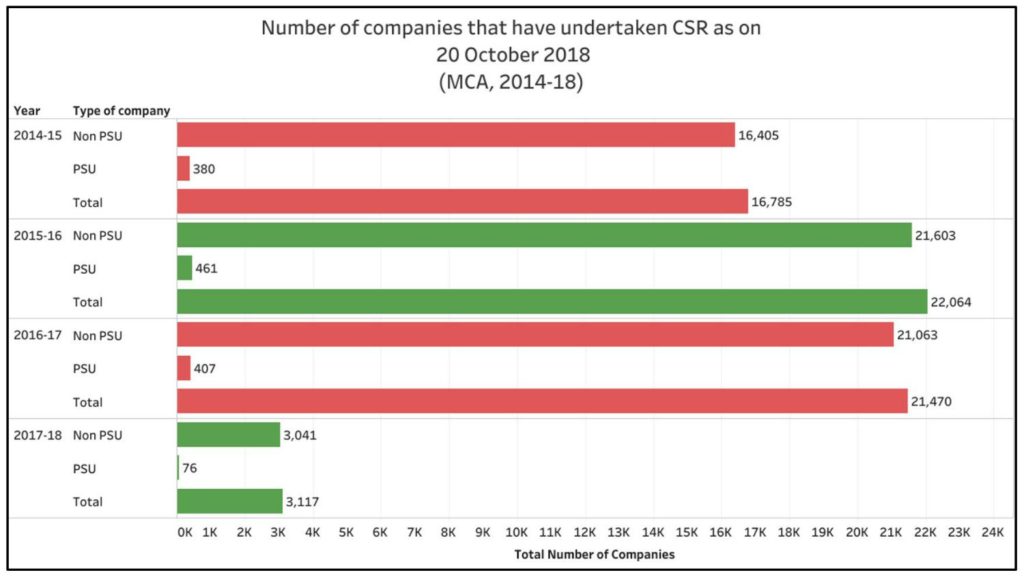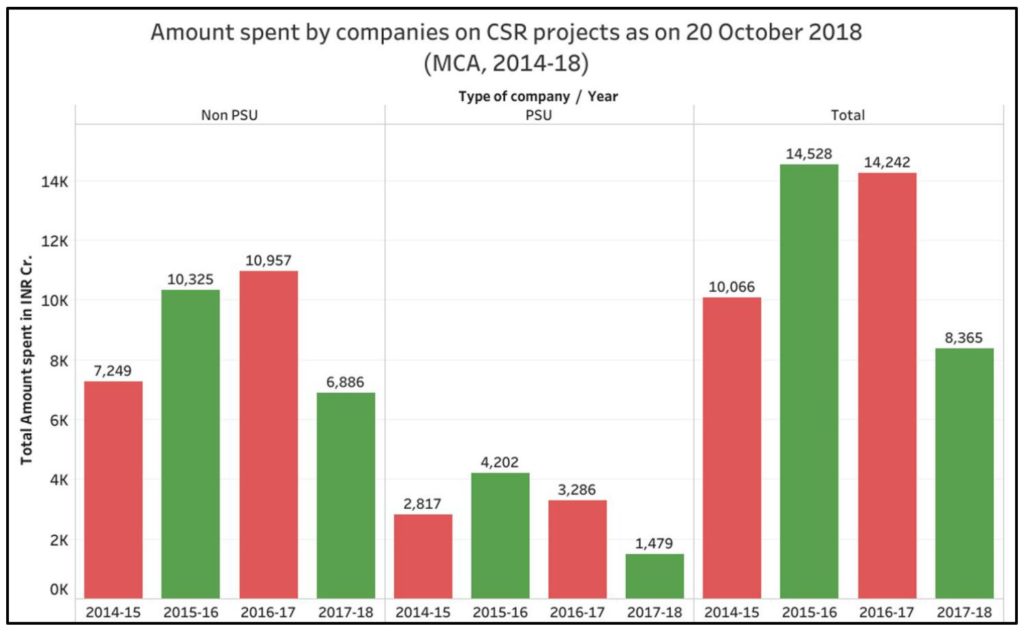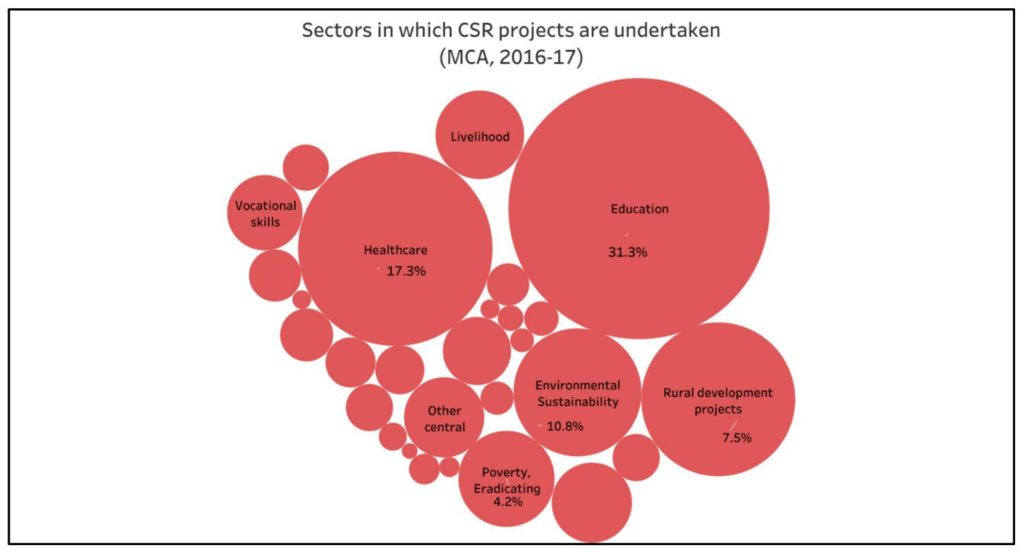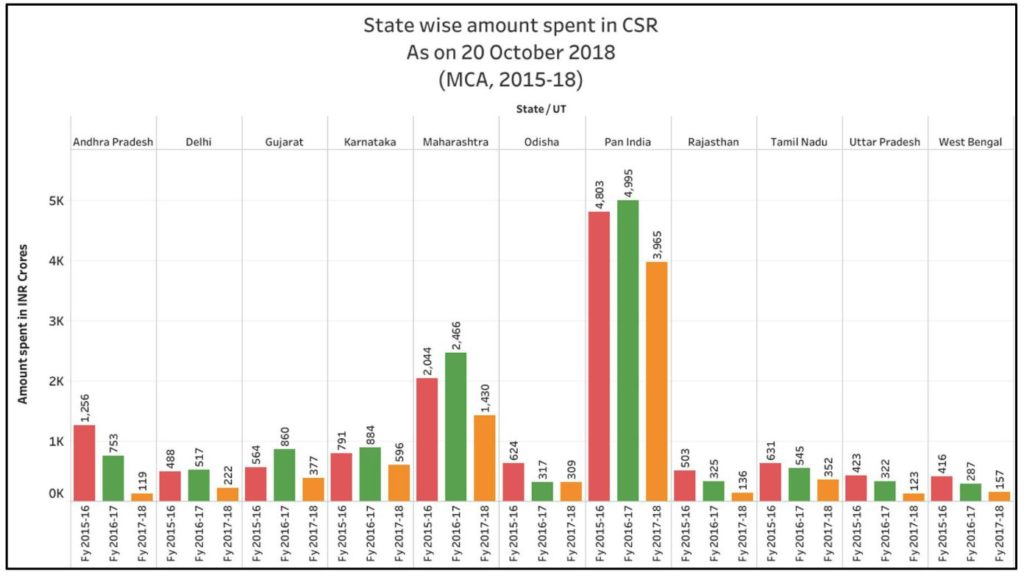[orc]Parliament recently amended the Companies act 2013 which made the CSR provisions more stringent. However, the government amended the act before the High Level Committee appointed to look into the CSR framework in India submitted its report. Here is a detailed story.
One of the Government of India’s stated goals is to become a $5 trillion economy by 2024. And to achieve this, India has to grow consistently at 9% or more and be one of the fastest growing economies in the world. Along with economy, there are other socio economic issues like malnutrition, poverty, education and health that need to be addressed to truly become one of the leading nations in the world.
Despite there being a considerable improvement in business environment in the country post globalisation and liberalisation, stark urban and rural divide is still one of the major issues in the country. To bridge this gap and to make the corporate sector more involved with the development sector, the government came up with statutory obligations under Corporate Social Responsibility (referred to as CSR), in Section 135 of the Companies Act in 2013.
By doing so, India has earned the label of being the first country in the world which has made CSR mandatory for all profit making companies. One of the stated objectives of including this provision in the law is to increase the accountability and disclosure of corporates and make them partners in social development. According to the CSR provision, fiduciary duties are bestowed upon the directors of the company. The act promotes responsible and sustainable business and makes it mandatory for the large companies in the country to channel their efforts in addressing social and environmental concerns across the country and hence, work towards the achievement of Sustainable Development Goals (SDGs).
Mandatory CSR expenditure is 2% of Company’s average net profit for previous 3 financial years
If a company has a net worth of minimum ₹ 500 crores, or a turnover of at least ₹ 1000 crores, or a profit of at least ₹ 500 Crores in any financial year, it should spend a minimum of 2% of its average of net profit for the previous three financial years on CSR activities as per the company’s policy, based on the Government’s guidelines. If the company has not completed three financial years of incorporation, the immediately preceding financial years must be taken into consideration as per the latest amendment to the act made during the recent monsoon session of parliament.
The Ministry of Corporate Affairs revealed in the Lok Sabha, the data pertaining to the number of companies- both private and Public Sector Undertakings( PSUs), the amount spent by them in CSR projects, the sectors in which the projects are being undertaken and the state wise CSR expenditure till 2017-18.
The number of companies undertaking CSR activities has increased
A glance at the data shared by the government indicates that the number of companies who filed details of CSR expenditure (including NIL expenditure) increased from 16,785 in the financial year 2014-15 to 22,064 in the following year 2015-16. As of the 30 October 2018, a total of 21,470 companies filed details for 2016-17 and only 3117 companies filed details for 2017-18.

PSUs constitute only around 2% of the total number of companies that have filed CSR expenditure details, but the share of their CSR expenditure is close to 30%. Compared to the first year of implementation, there has been an increase in the number of companies (both private and PSUs) undertaking CSR projects. In 2015-16, there was a 34.6% increase compared to 2014-15. However, in 2016-17, the number of such companies which filed returns reduced by 2.6% compared to 2015-16.
Private Companies expenditure on CSR increased by more than 50% in 3 years
Along with the increase in the number of companies filing CSR returns, the annual expenditure on CSR has also increased substantially. In the case of private companies (Non-PSUs), the total expenditure on CSR increased from ₹ 7,249 Crores in 2014-15 to ₹ 10,957 Crores in 2016-17, an increase of 51.2%. In the case of PSUs also, the CSR expenditure increased from ₹ 2,817 crores in 2014-15 to ₹ 4,202 crores in 2015-16. But this has subsequently decreased to ₹ 3,286 crores in 2016-17.

About 31% of the CSR expenditure has been on improving Education in 2016-17
There are a total of 29 major development sectors as per the Government’s classification in data presented in the Lok Sabha about CSR expenditure.

Of all the sectors where companies have spent CSR money in 2016-17, Education sector is the most prominent receiving 31.3% of the funds. Following Education is Healthcare where 17.3% of the CSR money was spent in 2016-17. CSR amounts spent on Rural development projects and Environmental sustainability projects were 10.8% and 7.5% respectively. These are the only four sectors where more than ₹ 1000 crores each was spent under CSR in 2016-17. The remaining 25 sectors including safe drinking water, poverty eradication and malnutrition reduction, livelihood enhancement, sanitisation, art and culture, sports, etc. together accounted for the remaining 32.9% of the CSR funds in 2016-17.
Highest CSR expenditure in Maharashtra
The following chart shows the CSR expenditure in the top ten states. Pan India covers all such expenditure where companies have not mentioned the state in which the expenditure was made or if they have undertaken projects in more than one state in India. The Pan India CSR expenditure has been the highest in all the three years for which data is available.

Among the other states, highest CSR expenditure was in Maharashtra where a whopping ₹ 2,466 Crores were spent in 2016-17 which is 26.6% of the total expenditure on CSR projects excluding Pan India. This is also due to the fact that Maharashtra has the largest share of companies (registered and active) in India followed by Delhi and West Bengal.
Government amended the CSR provisions before the submission of the HLC report
A High Level Committee (HLC) was set up in 2018 to study the existing CSR framework in the country and make relevant recommendations. The committee has made about 25 recommendations with respect to the Section 135 of the act after analysing the pros and cons. In the meanwhile, parliament amended the CSR provisions in the Companies act during the recent monsoon session of parliament. The amendment invited a lot of criticism because the CSR High Level Committee presented the report on 13 August 2019 while the amendment was passed on 31 July 2019– thereby not incorporating the committee’s recommendations and passing amendments in a rush. However, the Government hasn’t notified a date on which these amendments will come into force.
What are the major recommendations of the High Level committee?
It has to be noted that some of the recommendations made by the committee are already addressed in the amendment recently passed in the Parliament. However, many other recommendations are yet to be incorporated.
In the report, clarity has been given on CSR for newly incorporated companies which have not completed three years. The recommendations also include the need for opening a separate designated account for the unspent CSR funds whereas the recent amendment requires the unspent money if not dedicated to any CSR Project be transferred to another account named ‘Unspent Corporate Social Responsibility account’ within 30 days from the end of a financial year. Failing to spend this amount in three financial years, the amount should be transferred to National CSR Funds such as PM National Relief Fund as per Schedule VII of the Act.
In the case of unspent funds allocated for on-going CSR projects of the company, the amount will be transferred to the National Fund as above if not spent within six months after the end of financial year.
Violation of law will result in penalty up to ₹ 25 Lakhs and jail term up to 3 years
The recommendations of the committee mentioned the need for imposing penalties so that companies do not defy the rules. The government’s amendment on the other hand included not only a penalty for violation of these rules but also a prison term. Companies which violate the CSR provisions will be legally bound to pay a fine ranging from ₹ 50,000 to ₹ 25 Lakhs. Every individual in the company who is responsible is liable to pay a fine between ₹ 50,000 to ₹ 5 Lakhs and/or face imprisonment up to three years.
With these amendments, the CSR provisions have been made more stringent to ensure compliance. However, the opinion is divided on changes like prison term and transfer of the unspent amount to a government fund. It remains to be seen if the government makes further changes to the act based on the recommendations of the HLC.


